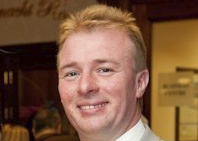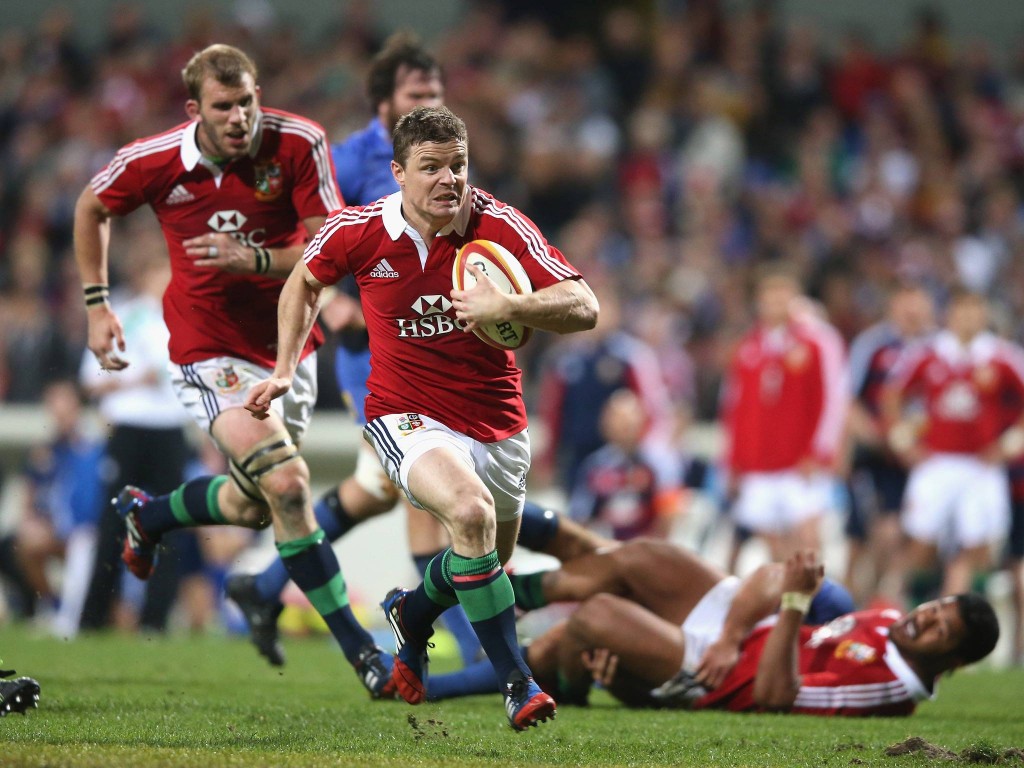Heroes
 Being an Irishman, and enthusiastic rugby supporter, I, like many other rugby fans, was much vexed when our Irish rugby hero, Brian O’Driscoll, was dropped for the deciding Test for the British and Irish Lions versus Australia this summer. This vexation was due somewhat to national pride, but more importantly, because he is one of my sporting heroes. This outpouring of emotion on the demotion of someone I’ve never met led me to contemplate the nature of heroism and heroes, how they affect us, and specifically how heroes can have a positive impact on urologists in this day and age of constant cynicism towards the noble deeds of others.
Being an Irishman, and enthusiastic rugby supporter, I, like many other rugby fans, was much vexed when our Irish rugby hero, Brian O’Driscoll, was dropped for the deciding Test for the British and Irish Lions versus Australia this summer. This vexation was due somewhat to national pride, but more importantly, because he is one of my sporting heroes. This outpouring of emotion on the demotion of someone I’ve never met led me to contemplate the nature of heroism and heroes, how they affect us, and specifically how heroes can have a positive impact on urologists in this day and age of constant cynicism towards the noble deeds of others.
Heroism is defined as conduct as exhibited in fulfilling a high purpose or attaining a noble end. To this end, how does my rugby hero qualify? Is it his display of innate skills that thrill the crowd? Is it his professional attitude to the institution of his sport/profession? Is it his ability to overcome adversity for the good of his team? (These are all attributes I see in my Urological heroes.) Personally, I think back to moments where I realised that he had done things that I couldn’t even imagine being able to do, and just marvel at them. Passing the ball to himself and ghosting past the opposition, scoring a length of the field try and being physically ill afterwards due to a pre-existing virus, being listed as ‘likely to play’ for the following week with a personal injury list of ‘concussion, torn hamstring and lacerated ear’. These are levels of physical and athletic prowess unattainable by most people.
But what of others that I would class as heroes? It is 50 years this June since the late John F. Kennedy made his famous speech in Berlin, immortalised by the phrase “Ich bin ein Berliner’. However, his greatest segment is when he lists some of the positives that people were attributing to Communism at the time, and extolling his own personal opposition with the repeated statement ‘Let them come to Berlin!’ Watching the reaction of a group of Berliners to this speech 40 years after its occurrence, seeing them moved to tears by his reiteration of the support of the free world to the citizens of Berlin, this alone is enough to convince me of the heroism of this amazing, somewhat flawed, ever impressive man.
Heroism can also be displayed by people using their professional experience to reach extraordinary outcomes in the face of enormous adversity. Captain Chesley ‘Sully’ Sullenberg, who, after a complete engine failure on his commercial jet, in the space of 180 seconds, managed to control and ditch his plane on the Hudson River in New York, saving 155 souls. His wife, on being told that her husband had landed a multi-ton commercial jet in a river, with no harm to anyone, apparently replied laconically “Oh that sounds like Sully, alright”.
But how does this relate to urologists? It is my personal belief that the ‘heroes’ we have in society today are not fit for purpose, vacuous celebrities of little consequence in general, and that we would all gain much by having a number of personal and professional heroes that we can use as an example when adversity, conflict, or difficult decisions face us as surgeons. Surgeons should, and often do, aim to attain a noble end. I have many heroes in Urology in particular, and often use their example, and sage-like advice in times of difficulty,
It is extremely easy to live life these days in a manner that loses sight of the wonder and awe with which we held medicine when young. It is easy to live life in a manner where much of it seems jaded and worn. It is easy to believe that there are things we cannot do, goals we cannot reach, achievements we cannot achieve. In these situations, having a hero, whose deeds seem somehow beyond what the rest of us can do, can give us a guide, an example to strive to emulate, attempt to equal, maybe even to surpass. It is this aspect of heroism which can be utilised as something to be aspired to, for the betterment of all.
On a final note, I am often astounded by the heroism of my patients. For these people to be able to face ill health, their own frailties and mortality and put their trust in us as surgeons, especially if we are recommending a new or unique form of treatment, is to display a level of trust that definitely puts them in the pantheon of heroes for me. I believe we owe it to them to remain interested, invigorated and willing to sacrifice ourselves to emulate our heroes, for their benefit. Heroes are great, everyone should have one!
David Bouchier-Hayes is Consultant Urologist and Robotic Surgeon Honoray Clinical Lecturer at the Galway Clinic, Doughiska, Co. Galway, Ireland. Follow him on Twitter @dbh44


